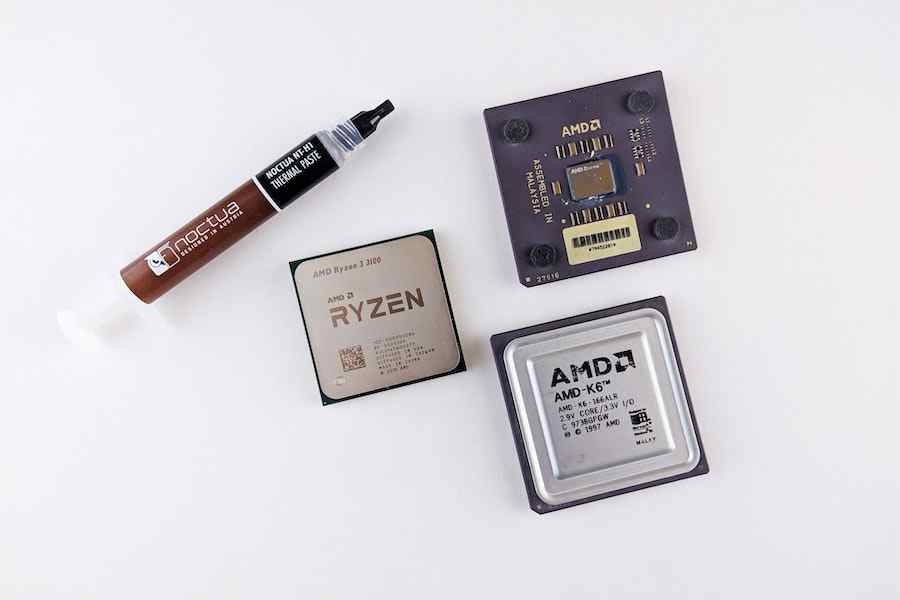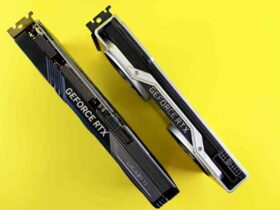When it comes to gaming, performance is essential. AMD Ryzen 3 processors are an affordable option for gamers who are looking to upgrade their PCs on a budget. On the surface, Ryzen 3 processors appear to be a great option, but there are both pros and cons to consider. Ryzen 3 processors are known for their excellent price-to-performance ratio, but they may not be the best choice for more demanding gaming. To help you decide if Ryzen 3 is right for you, we’ll discuss the pros and cons of AMD Ryzen 3 processors and examine whether they are good enough for gaming.
Is Ryzen 3 Good For Gaming?
Yes, Ryzen 3 is a great choice for gaming. It’s one of the most popular CPUs for gaming on the market right now, and for good reason. Ryzen 3 offers an impressive amount of power for an affordable price point. The Ryzen 3 lineup consists of three processors: the Ryzen 3 1200, 1300X, and 1400. All three are quad-core processors with a base clock of 3.1GHz. The 1300X and 1400 also have a boost clock of 3.4GHz and 3.8GHz respectively.
What Are AMD Ryzen 3 Processors?
1. Ryzen 3 Gaming Performance
Let’s start with the question we all want to be answered: how will Ryzen 3 perform in a gaming rig? Overall, good. The Ryzen 3 processors are a good choice for gaming and streaming, though they may not be ideal for hardcore gamers. If you’re looking to upgrade your PC from the previous generation i3 or the budget-friendly Pentium or Celeron series, then there’s no reason why you shouldn’t consider an AMD Ryzen 3 processor.
2. AMD Ryzen 3 Reduced CUDA Cores
The other thing that matters is what kind of performance you can expect when upgrading from an entry-level (budget) CPU to a more advanced one. In this case, AMD Ryzen 3 offers a modest boost of up to 10%. That might not sound like much at first glance, but if you’re considering upgrading from a cheap eigenvalue or atom processor to your regular CPU and/or GPU, it can make a difference.
3. AMD 4 Core vs 6 Core
Now let’s take a look at the specs of Ryzen 3 processors. The Ryzen 3 1200 is the entry-level 4-core processor, while the 1600X and 1700 both come with a 6-core. 6 cores might seem like more power, but that extra core can hurt performance if the chip does not support all six cores.
4. AMD Zen Architecture Features
With an eight-core design, AMD Zen has more potential for future CPUs than Intel’s Zen 2 (or any other following Intel architecture). For this reason alone, it makes sense to consider upgrading from a previous generation of AMD processor to an AMD Ryzen 3 processor. The higher core count can make a noticeable difference in performance when paired with 8GB or 16GB of RAM. So if you have truly high demands on your system, then it might be worth considering upgrading to an AMD Ryzen 3 processor after reviewing all the options and comparing them to your current setup.
5. Gaming Performance
If you’re looking to upgrade your PC, then it’s important to consider this. If gaming is your main usage of the PC, then it’s a good idea to get the best performance you can find. In this case, the AMD Ryzen 3 processors offer a good price-per-performance ratio in comparison with Intel processors.
6. Stock vs Overclocked Performance
While there are many reasons why people might want to upgrade their PC, overclocking is often the most popular choice because enthusiasts want more control over their system and they want to tweak their settings as much as possible for their system to satisfy them. There are still some AMD Ryzen 3 processors which are fully unlocked for overclocking and there are also some that come with pre-overclocked chipsets on the CPU side, though not on the GPU side (see video below).
7. Value for Money
Whenever you’re upgrading from an entry-level CPU such as an AMD APU, then you need to consider the value for money too. If you’re upgrading from an entry-level CPU such as an AMD APU, while if you’re upgrading from a higher tier entry-level CPU such as the AMD Ryzen 5 1400, chances are you’ll be getting very good value for money.
8. Support History
The support history is important to consider before making your choice. This is especially true if you intend to use your system as an everyday workhorse for some time future – and even more so if your goal is for it to last several years or longer – because overclocking will eventually lead to instability, overheating, and damage in your system.
9. Build Quality & Compatibility
If that’s not enough reason to get excited about getting an AMD Ryzen 3 processor instead of any other comparable processor, other factors can make a difference for some people: build quality, compatibility, and convenience – at least if you plan to upgrade your system a few years down the line. This can be particularly important to consider if you’re building a new PC because most of the AMD Ryzen 3 processors are compatible with the new AM4 socket.
Pros Of AMD Ryzen 3 Processors
1. Decent Performance per Dollar
AMD Ryzen 3 processors are the most affordable and budget-friendly CPUs in the AMD processor lineup. For instance, the AMD Ryzen 3 1200 and 1300X processors offer a value-for-performance ratio that is higher than any other series in this price range.
2. High PDC Per Dollar Ratio
Another advantage of the AMD Ryzen 3 processors over their Intel counterparts is that they offer a high performance per dollar ratio compared to entry-level Intel processors. For instance, the AMD Ryzen 5 1400 offers a very high performance per dollar ratio compared to its Intel counterpart – it performs 4% better in terms of PPI (Performance Per Instruction).
3. Compatibility with New Socket Technology
Even if you don’t plan on overclocking your system, just getting an AMD processor with a new socket technology can make a big difference in terms of compatibility with future upgrades and expansions (see Compatibility Table above). Therefore, it’s not just limited to those who need more than 4 cores and 8 threads but can suit most entry-level to mid-range users as well as gamers.
4. Overclocking Capabilities
Besides performance, many AMD Ryzen 3 processors have specialized hardware that can be used for overclocking – some even support it out of the box, and others require a little bit more know-how. Not only will this make your system more future-proof in terms of performance, but you can even use those capabilities to build a very high-performing computer for less money than the equivalent Intel processor does.
5. Multiple Channels & Other Hardware Features
Although not all AMD Ryzen 3 processors come with multiprocessing capabilities enabled by default, most do come with two physical cores per physical core (with a 2:1 ratio). This means that you don’t need to worry about having enough processing power on your system since ultimately the more cores you get means that your system will perform better. Some other core features include built-in security features, extra virtualization support for virtual machines, extra I/O support, and more.
6. Compatibility with More Software
AMD Ryzen processors are compatible with more software than any other competing CPU – as you can see from the list above, even alternative operating systems and media players will work on those processors. Among the software that works on AMD Ryzen processors are some extremely popular ones such as Adobe Photoshop, Microsoft Office (including Outlook), Razer Synapse, Steam Client, Handbrake, and more! There is also a growing list of free applications available which will work on AMD systems including Adobe Photoshop cc, Google Chrome, Firefox, Spotify Client, Internet Explorer 11, Adobe Reader DC, etc.
Cons Of AMD Ryzen 3 Processors
1. Price
While AMD Ryzen processors offer great value for money for entry-level to mid-range processors, the high price of the AMD Ryzen 7 and AMD Ryzen 5 processors doesn’t fit everyone’s budget. While most people should find a suitable balance between value and performance, that balance may not be within reach for some users.
2. Many Processors are not Overclocked
AMD did not make many models of their Ryzen 3 processor line that can be overclocked. The majority (about 60% or more) of all the models are having default frequencies with the full supporting BIOS, NCU, and UEFI update from AMD. This is because these processors have been originally designed to suit most entry-level to mid-range users who will go on doing tasks like watching videos or editing photos with no one spending much time doing CPU-intensive tasks like gaming or video editing or gaming, but also can support some applications such as Adobe Photoshop which needs a lot of CPU power if you want to do some serious image editing.
3. Only one kind of 8-core processor made from AMD
In comparison with Intel processors, AMD was the only one to release various kinds of 8-core processors, but not the same kind for both companies. Intel had the Core i7 and Core i5 models that all come in different flavors with different features and specifications (of course these differences affect their prices as well). While AMD has released many different models of CPUs, not all came with 8 cores, some even come with less than 4 cores!
4. Poor Performance
Although the AMD Ryzen 7 and AMD Ryzen 5 processors demonstrated great performance in games, tasks, and applications at their launch, some people claim that these processors are not that fast in the real world. This is because it is hard for CPUs to put full power output (about 95% of its maximum) when you’re doing normal tasks like running an office application or web browser. Some people have reported performance issues when doing video editing with these processors, but as long as your system doesn’t need lots of CPU power for normal daily tasks such as web browsing and installing applications, then these problems should not be a problem for you.
5. Not Enough RAM and SSD Space
Although there are multiple models of the AMD Ryzen 3 processor family ranging from 4 to 12 cores with different features, some users find they cannot fit even 8GB RAM on their systems. At least 16GB RAM would be ideal but if you can get by with 8GB only then you’re lucky!
Are Ryzen 3 Processors Good Enough for Gaming?
- AMD Ryzen 3 processors are an excellent choice for gaming as long as you understand what you’re getting. Ryzen 3 processors are designed for standard computer tasks, but they can also handle modern games.
- Ryzen 3 processors are an excellent choice for gamers who want to play at 1080p on medium to high settings.
- They’re also a good option if you’re on a tight budget but are still trying to get a performance boost. Don’t expect Ryzen 3 processors to perform as well as Intel’s Core i5 and Core i7 processors when it comes to running demanding games. Ryzen 3 processors simply don’t have the power to keep up with Intel’s flagship chips.
- If you’re planning to play games at high resolution or with high-end graphics settings, Ryzen 3 processors are not a good choice.
Conclusion
AMD Ryzen 3 processors are a great choice for gamers who want a cheap upgrade. They offer better performance than similarly priced Intel Core i3 processors for a lower price. AMD Ryzen 3 processors are not the best choice for people who are looking to push their systems to their limits. They are designed for standard computer tasks and can handle modern games, but they won’t perform as well as Intel’s top-end CPUs when it comes to demanding games.















